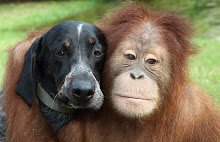When I went to Kabul in September of 1965 there were about 200 mostly young Americans in Afghanistan, serving in the U.S. Peace Corps. Half of them were in Kabul, the rest spread around the countryside in other cities, including Kandahar and the Helmand Valley, and small towns and villages. The majority were teachers of some sort - English, math, science, nursing. Some were training secretaries for the Ministries in Kabul. Some were accountants helping the government switch the accounting system. Later a group of vaccinators joined the crew. The majority of these young Americans had never been outside the United States before. One of my roommates grew up on a dairy farm in Wisconsin; she was the first of her family to leave her COUNTY!
We rode bicycles everywhere, even we girls who wore shirtwaist dresses and NO headscarves. We traveled all over the country whenever we had days off and the only place that was off limits was Nuristan, and that just because it was so remote and the government worried that if foreigners were injured or became ill, help was too far away. Some of the volunteers in my group who lived in Kabul actually rode their bicycles all the way from Kabul to Jalalabad. We climbed mountains and rode on top of the highly painted trucks. We rode through the streets of Kabul on Christmas Eve singing carols at the top of our lungs. No one paid the slightest attention.
Those of us outside Kabul had to arrange our own housing and deal with our own landlords. I was 22 when I moved from Kabul to Herat. I rode all over town viewing candidate houses and finally found the perfect place. A large compound with alfalfa and potatoes growing there. A brand new house that didn't even have glass in the windows. I moved in, had a well dug, passed on installing a flush toilet and made do with the new latrine. My roommate didn't show up for three months so I lived alone - to the landlord's consternation. I was given a puppy named "Gorg" (wolf) by the little brother of a fellow teacher at the girls' high school where I taught 10th grade English. I also taught FOUR classes of 7th grade boys in a teachers' training school for boys from the countryside. At the beginning of the school year their heads were all shaved for lice prevention, outside under a mulberry tree. Those sweet boys - most of whom wept while losing their locks - would now be 57 years old. Those, of course, who are still alive which given the 37 years of turmoil and war may not be many.
We worked hard. We had to ride two miles across town to use the only mimeograph machine to print up examination papers for the students. We practiced eating wonderful Afghan food with our hands. We learned to speak Dari and made friends, some of them for life. We sat on the ground and chatted with the elders like U.S. servicemen are learning to do now. We visited mosques and shrines and were welcomed in theseplaces by Afghans happy to share their special places and pleased that we were interested. We went to Bollywood films 40 years before most Americans ever heard of them. We learned to carry pine nuts in their shells in our winter pockets because they were a "warm" food. My roommate and I went to the public bath once a week because it was SO much cheaper than the cost of the wood needed to heat water at home.
In those days there was a balanced and sound relationship between the monarchy and the tribes, between and among the ethnic groups. Afghanistan in the 1960s was not a democracy but it WAS a sovereign functioning country. The people lived a calm and peaceful Muslim life and everyone, Afghans and foreigners alike, could go and come as they pleased.
We PCVs had a life-changing, wonderful experience. We learned much in Afghanistan that we couldn't have learned anywhere else. We were welcome there and we made a difference. Children learned things and began to imagine where we came from and what it was like there. Many people in Afghanistan today still remember - fondly - the name of their Peace Corps teacher. Many of the Ministers in the cabinet created in Afghanistan in December 2001 had Peace Corps teachers. We all need peace in Afghanistan today. What a day it would be if we could again send our peace rather than our war corps to live and learn and help places all over Afghanistan.
This year is the 50th anniversary of the U.S. Peace Corps. We can renew our commitment to this important tool for learning about and helping the rest of the world.

No comments:
Post a Comment